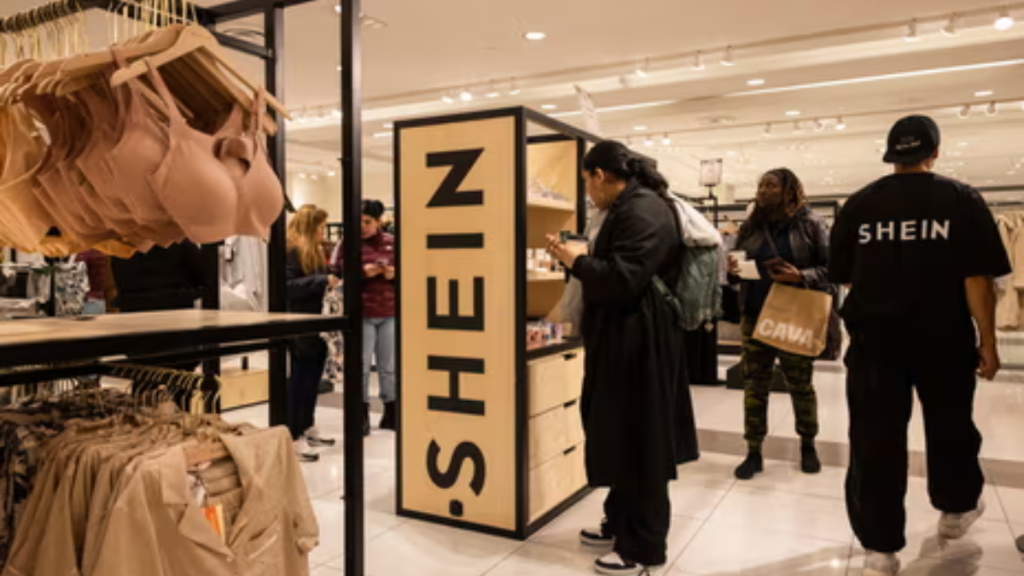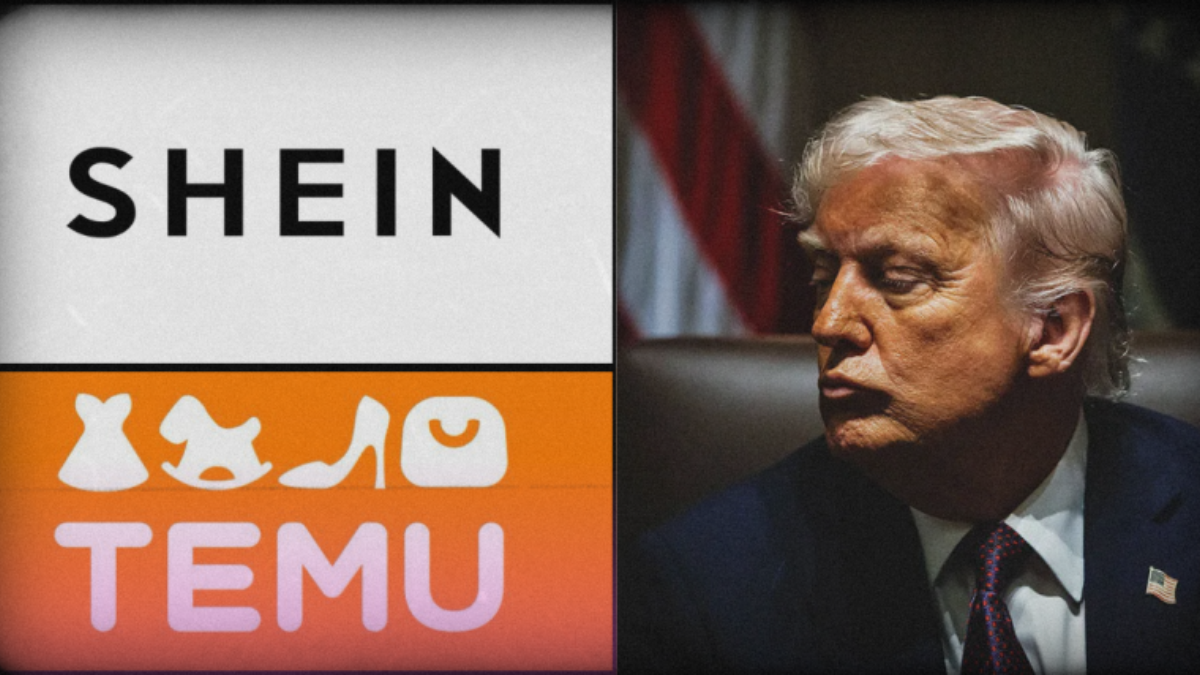As former President Donald Trump continues to advocate for steep tariffs on imports, major retail brands—including Shein, Target, and Walmart—are speaking out about the economic repercussions.
These companies warn that Trump’s proposed tariffs could significantly increase their operating costs, forcing them to raise prices on everything from clothing and shoes to electronics and household goods.
Under Trump’s 2025 economic proposal, a universal 10% tariff would be imposed on all imported goods, with a specific 60% to 100% tariff on Chinese imports. This could directly impact companies with global supply chains and cost-conscious U.S. consumers already grappling with inflation.
Shein and Temu Lead the Price Hike Announcements
Online fashion giants Shein and Temu, both of which rely heavily on Chinese manufacturing, have already begun informing customers of impending price increases. Starting April 25, 2025, the two platforms will raise prices on most U.S. orders in response to the proposed tariff policy.
The tariff overhaul would eliminate the current $800 exemption for imported goods, resulting in duties as high as 145%.
The changes are not only affecting product pricing. Both companies are also cutting back on digital advertising budgets, reducing ad spending on platforms like Meta and Google to manage rising costs. This move is expected to impact digital ad revenues across multiple industries.
Other Major Brands Brace for Impact
Here are several other leading U.S. brands that have warned about price hikes or operational changes due to Trump’s tariff proposals:
- Target: While not yet announcing specific price increases, Target has stated that it is evaluating the potential cost impact of renewed tariffs on its broad inventory of consumer goods.
- AutoZone: CEO Philip Daniele has confirmed that tariff costs will likely be passed down to customers, noting that the company is proactively adjusting pricing ahead of potential increases.
- Columbia Sportswear: CEO Tim Boyle acknowledged that his company is prepared to raise prices in the event that tariffs disrupt current manufacturing partnerships in China.
- Stanley Black & Decker: CEO Donald Allan said the company is “modeling various tariff scenarios” and expects to increase prices depending on how policies evolve.
- Steve Madden: The footwear brand is shifting more of its manufacturing operations from China to countries like Cambodia, Mexico, and Vietnam. Even so, it anticipates higher costs in the short term.
- Walmart: As one of the largest importers in the U.S., Walmart has voiced concern that increased tariffs will lead to higher costs for consumers, particularly in categories like toys, clothing, and electronics.
- Lowe’s: The home improvement retailer sources around 40% of its inventory internationally. CFO Brandon Sink stated that any increase in tariffs will “absolutely influence product costs.”

Economic Analysts Predict Ripple Effects for Consumers
Economists across the board warn that Trump’s tariff plan could deal a blow to American households, especially those already struggling with high prices due to inflation and supply chain disruptions.
The National Retail Federation estimates that the proposed tariffs could reduce American consumers’ purchasing power by $46 billion to $78 billion per year.
Items that could see significant price increases include:
- Sneakers: A $50 pair could cost up to $64
- Jeans: An $80 pair may jump to as much as $96
- Electronics: Laptops and smartphones could see double-digit increases
- Appliances and Furniture: Larger items may carry hundreds in added costs due to duties
These increases may hit low- and middle-income households the hardest, as they spend a larger share of their income on essentials.
Will Retailers Shift Supply Chains to Avoid Tariffs?
Many companies are accelerating efforts to diversify supply chains, sourcing goods from non-Chinese markets such as Vietnam, India, and Mexico. However, shifting production hubs is a costly and slow process, meaning short-term price hikes are likely inevitable.
For instance, Steve Madden is working to cut Chinese sourcing in half, but this transition won’t be complete overnight. Stanley Black & Decker is also exploring alternative sourcing, but still relies heavily on Chinese suppliers for core products.
Conclusion: Expect Higher Prices if Tariffs Return
While Trump’s proposed tariffs are still hypothetical, the response from major retailers is loud and clear: If implemented, U.S. consumers will see price increases across a wide range of goods. Shein, Temu, Walmart, and other companies are already taking steps to manage the added costs, and shoppers should be prepared for a more expensive retail environment.
From fashion to footwear, home goods to hardware, the effects of these tariffs could touch nearly every corner of the consumer economy. For now, experts recommend that consumers monitor retail trends, seek competitive pricing, and take advantage of sales events and loyalty programs to help offset future price jumps.
For further details on how Trump’s proposed tariffs could impact your wallet and the global economy, visit The Washington Post’s coverage.
Disclaimer – Our team has carefully fact-checked this article to make sure it’s accurate and free from any misinformation. We’re dedicated to keeping our content honest and reliable for our readers.
